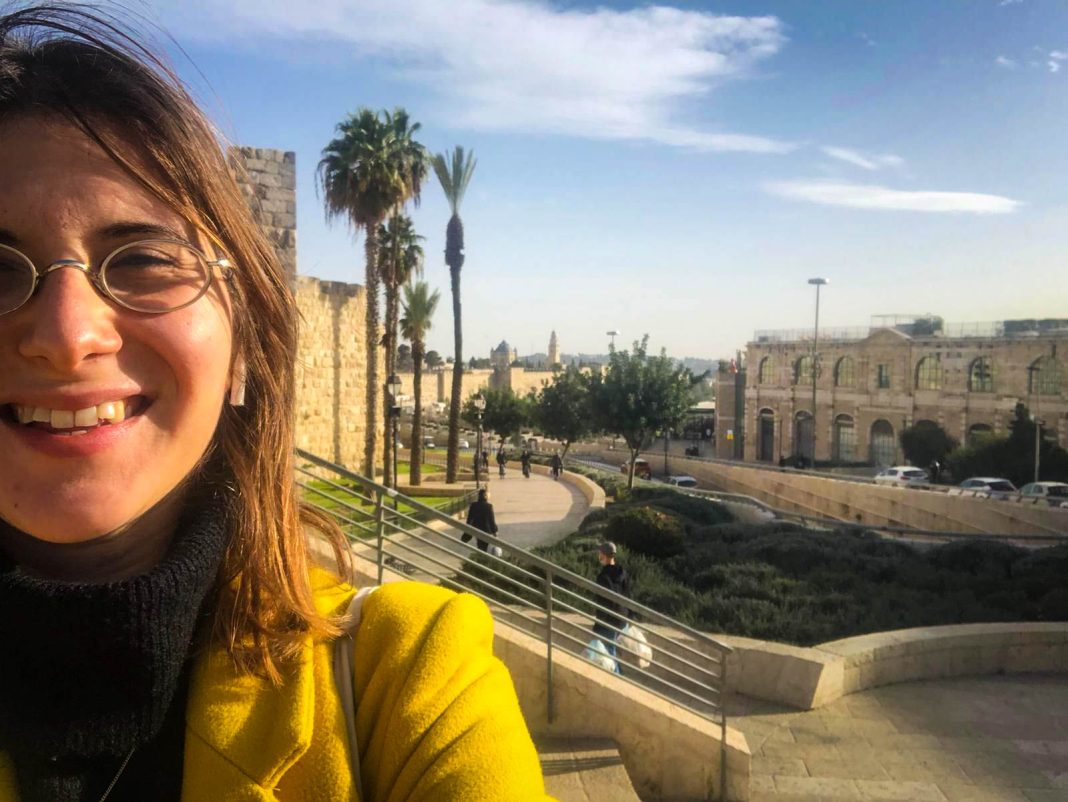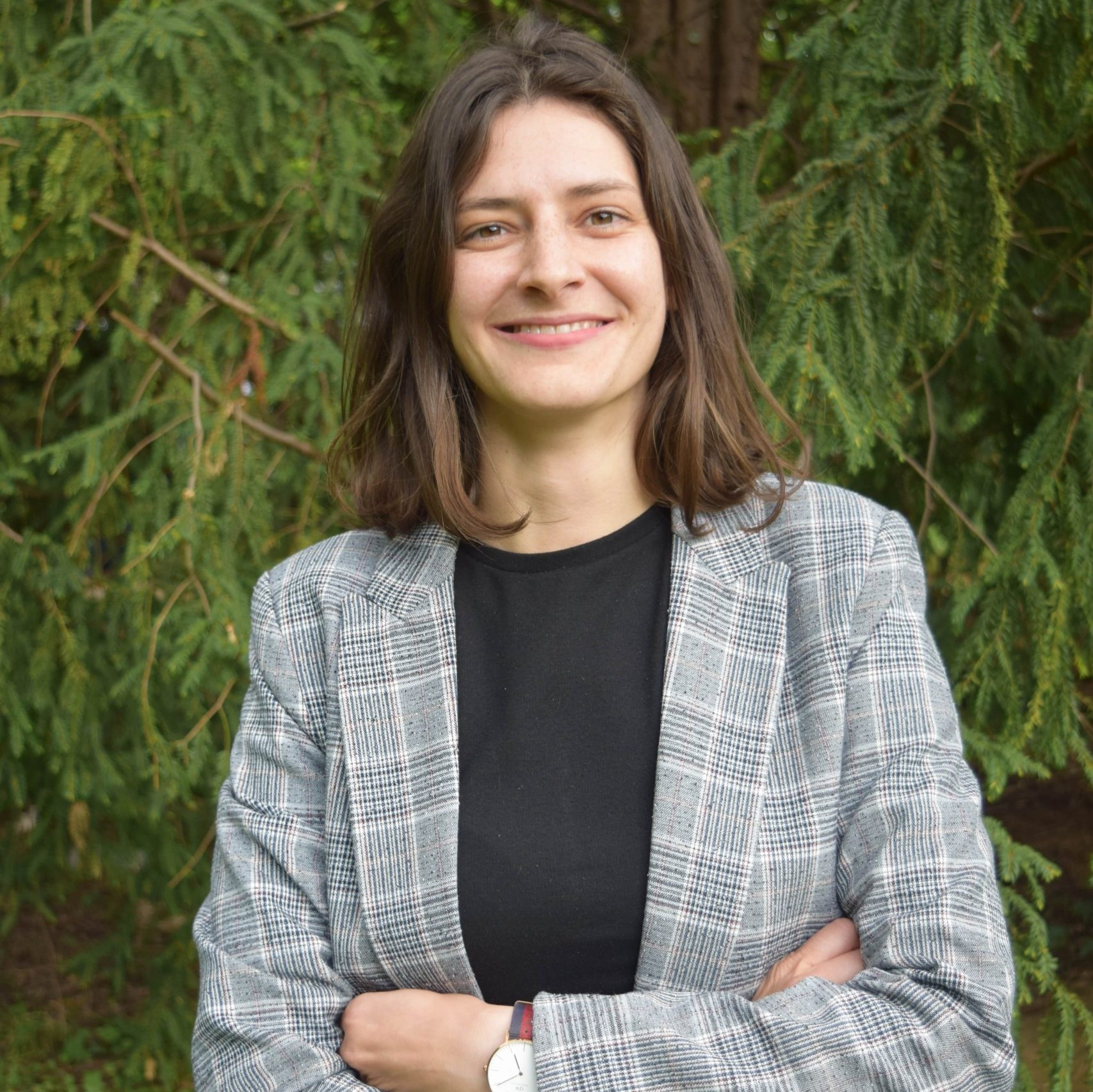Tamar Guberman is a young Urban and Environmental Planner from Israel. Having grown up in Tel Aviv, Tamar quickly realised “there is no other city like her in my country”. It is a safe haven for secular minds, a place for the young, for individuals to be themselves. And to Tamar, it’s a place worth not just preserving, but helping to grow and prosper, with more green spaces dedicated to Israelis.
It was the love of nature that sparked this Young Leader’s enthusiasm for urbanisation. She started off studying law, sociology, and anthropology, but soon realised that nature is what makes her heart beat. This led Tamar to make the difficult decision to give up on law and instead pursue studies in geography. With it, the discovery of urban planning came like a breath of fresh air; finding out that “there are people that actually work in making the cities we want to live in,” she says, “felt like a very obvious path” to follow.
Having experienced living both in Jerusalem and Tel Aviv, Tamar sees the variety of the two cities and recognises even more the need for proper urban planning. Each city has its own character, its own nature, and its own needs for the way they continue to be built. “Living in those cities of Israel really makes you think all the time about how we plan, where we want to live, and who can live in those places and those urban structures,” Tamar ponders.
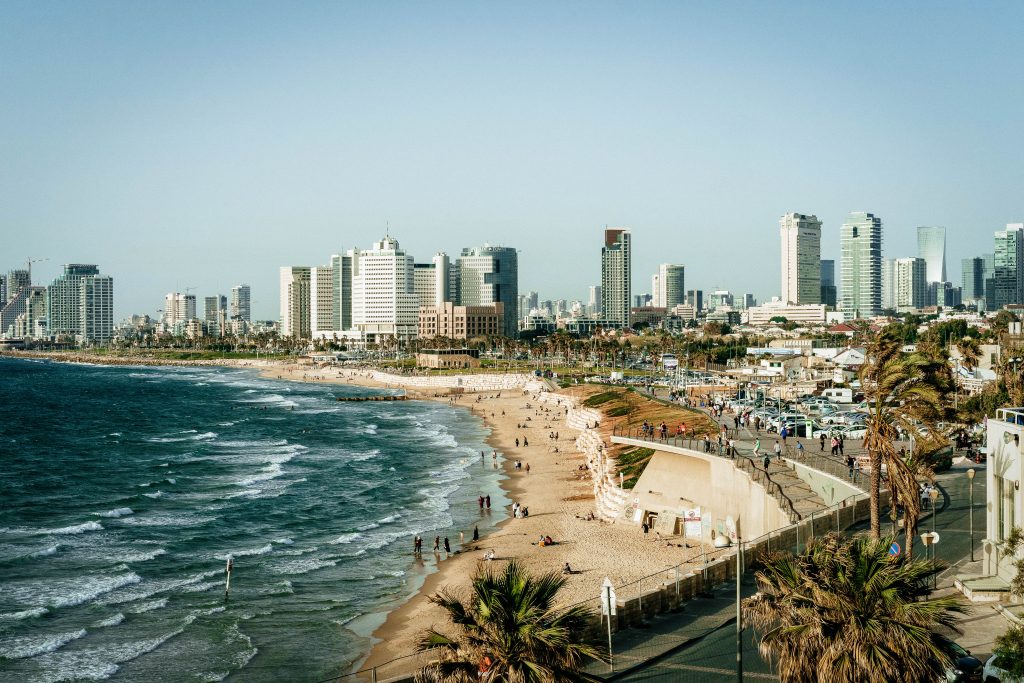
More modern Tel Aviv, Israel. Image credit: Unsplash / Adam Jang 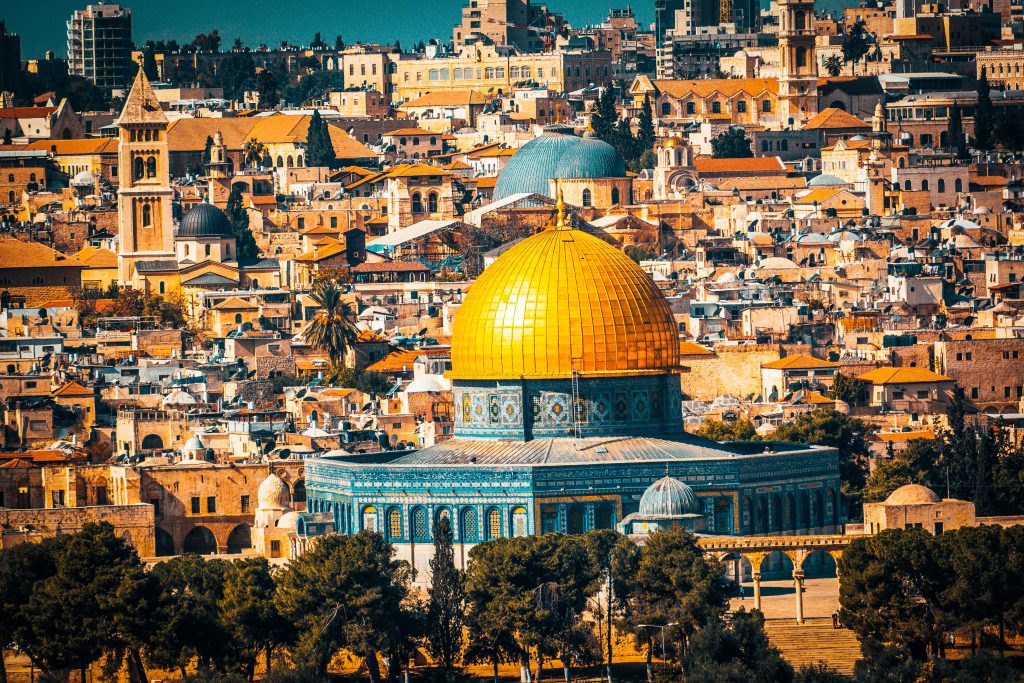
More traditional Jerusalem, Israel. Image credit: Unsplash / Raimond Klavins
Change Plans, If Needed
One of the many things that make Tamar stand out is her ability to admit when the urban plans are not good enough and her willingness to inconvenience anyone involved for the benefit of better plans and quality life for residents in the long run. Not many put efficiency over pride.
It was while working at the consulting company, called Moti Kaplan Planners Ltd., in Jerusalem that she learnt plans can, and should, be changed if they are not right. Conserving money, time, and effort shouldn’t prevail over the long-term well-being of a city.
Jerusalem planned to build apartments on new grounds, demolishing a huge natural area to make room for it. To the request of Jerusalem’s Mayor, Moti Kaplan Planners Ltd. set upon changing the Lavan Ridge plans, designing the construction in a smarter way. This reduced the size of the build, thus saving a huge chunk of “green lungs of the city”.
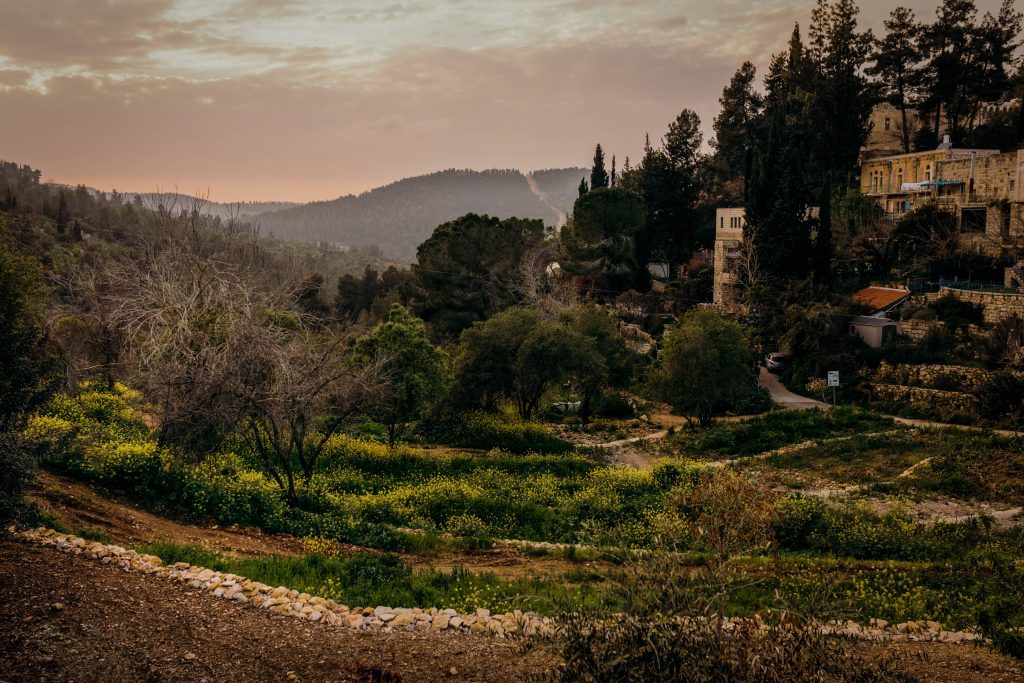
The Young Leader quickly comprehended the lesson: it takes years for a certain plan to turn into reality:
“What happens during this time is things change: our principles, urban planning, our morals, even what we think is right and wrong in planning. And our thinking environment is changing, the technology is changing, everything is changing. So instead of giving a green light to a plan, just because it’s been already going on for 10 years and people put so much effort in and spent so much money on it, it might not be enough. So, we shouldn’t let it happen, especially now that we know more about the climate crisis than what we knew years ago.”
It’s important to have an overall view of the plan. Coincidentally, this is one of the skills Tamar says she needed the most in her urbanisation career so far.
Seeing the Bigger Picture & Optimism – Skills Needed to Move Forward
When you’re planning, you need to take numerous elements into account, “it’s different needs of different people from different ages. And the needs of nature,” explains Tamar, summarising the need to see the bigger picture at all times.
Another much-needed skill is optimism. “Believing that you can,” because the planning journey has its obstacles for sure – time span, effort, people involved, money – all putting obstacles in front of the young planner.
With Experience Comes Knowledge
There’s no denying Tamar has a sharp mind. Still in the early stages of her career, she has already encountered and absorbed many pivotal lessons in urban planning. One of which is the following:
When Tamar worked for the government at the Office of Interior Matters, she was extremely surprised that her boss didn’t vote against a certain building plan that she didn’t necessarily agree with. And to her bigger surprise, he answered by telling her that when he’s there, he is “representing the interests of the office”. Thus, “each representative was voting for the narrow interests of [their] office, instead of thinking as a collection of people for a mutual cause – making a better plan.”
For Tamar, knowing that “if you want to make things move forward, you have to know how to connect a lot of people and see their interest as well”, this was something she didn’t want to hear.
“By telling me something I didn’t want to hear, I learned better what I should do.”
Family With Passion
As we know all too well by now, working in the urban field can be very rewarding, but it can likewise be very difficult. What motivates our Young Leader to keep going?
For Tamar, the answer is simple: she cares. Like her parents and grandparents before her, she cares about her work and her city.
“Growing up in a family that’s filled with people who care is what motivates me. We just care. I don’t know anything else other than caring.”
What to Change in a City?
“I am a person that walks a lot. I have no sense of what a normal walking distance is,” jokes Tamar. It’s only natural that she is the most excited to see changes in the cities linked to walkability. To Tamar, walking is “going more mainstream” and “thinking more about how to make the space more walkable and nicer will become the norm.”
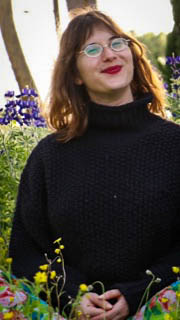
Noticing how COVID-19 changed the Israelis’ perception of the urban area, Tamar recognises changes in the understanding of place-making. “It was really great to see people getting into parks and just sitting outside on the sidewalks. We have good weather most of the year, so it’s nice that we can take advantage of it more,” says Tamar excitedly.
Not just that, but she also sees changes in nature-based solutions, concretely with urban streams making their comeback: “For many years, Israelis just skipped streams, put them in concrete tunnels and under the ground; but now the realisation is coming back to let hydrogeology do its work. That’s the right solution also for flooding.”
Overall, nature reclaiming its way back into urban planning is what this nature enthusiast is looking forward to most in the future.
Tamar’s Future
When it comes to her own future on the urbanisation path, Tamar delights in the unknown. “I don’t have an answer yet,” she says with a smile, “but I think that’s what’s amazing in urban planning. It’s a field that offers you so much to do. We can take it in so many different directions. I’m now more of an environment person, but I also like the social part. It’s nice to know that there are a lot of doors waiting, and we’ll see which one I will go to when the time is right.”
With the pressure on young people to have it all figured out, these are some wise and refreshing words to hear! And we have no doubt as to the bright future awaiting this Young Leader.

